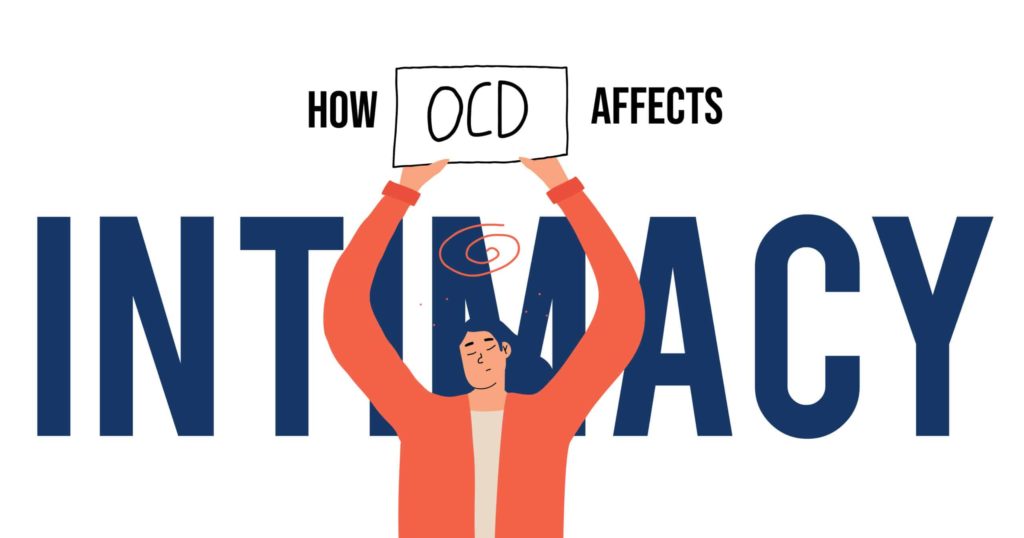Obsessive-compulsive disorder is a psychiatric illness and medical condition that has far-reaching effects on a person’s daily life when not treated, like other mental disorders. Learning how OCD affects intimacy, interpersonal relationships, and everyday life is important if you love someone with the disorder or you are personally suffering from the condition.
Understanding Obsessive-Compulsive Disorder
Obsessive-compulsive disorder (OCD) is an anxiety disorder affecting people from all backgrounds and all ages. According to the American Psychiatric Association, someone with this mental health disorder is caught in a cycle of obsessions and compulsions.
Obsessive thinking is an unwanted, intrusive thought. These thoughts are distressing for the person experiencing them. Then, compulsions are behaviors someone might engage in to try and reduce the distress or eliminate the obsessions.
Most people will have obsessive thoughts or engage in compulsive behaviors from time to time, but that doesn’t mean they have a diagnosable health condition. The differentiator is that OCD is extreme because it’s time-consuming and affects functionality.
When someone experiences obsessions, they can be impulses, thoughts, or images they don’t want to have. When you have OCD, you realize your thoughts are illogical or don’t make sense, and you may feel disgust, doubt, or fear when you have the obsessions.
Common obsessions can include:
- Fear of germs or fear of contamination
- Unwanted sexual thoughts or sexual obsessions
- Religious obsessions
- Obsessive fear about losing control, such as an extreme fear that you would act on an impulse to hurt another person.
- Some obsessions relate to perfectionism. For example, you could have a fear of throwing something important away.
When you engage in compulsive, repetitive behaviors, you try to make your obsessions disappear or counteract them. You know when you have OCD that this will only give you temporary relief, but you can’t stop.
Your compulsions and obsessive-compulsive symptoms take up a lot of your time, and they prevent you from being able to do other things you value or enjoy in your life.
Common compulsive rituals can include:
- Washing or bathing obsessively.
- Cleaning rituals
- Checking that you didn’t make a mistake repeatedly
- Mental rituals like reviewing events to try and prevent harm to other people.
- Counting while doing tasks to end on what you perceive as a safe or good number.
- Arranging things until they feel right.
- Developing symptoms similar to a hoarding disorder because of a fear of losing something or throwing it away.
For some people, OCD co-occurs with other mental health disorders like depressive disorder or generalized anxiety disorder. The adverse effects of one mental disorder can affect the other and worsen it without treatment.
OCD isn’t the same as an obsessive-compulsive personality disorder. The primary difference is that people with an obsessive-compulsive personality disorder don’t often realize they have an issue. When you have an OCD diagnosis, you know that your thoughts and behaviors aren’t rational and very distressing to you, but you can’t stop.
Mental Health Center of San Diego
How Does OCD Affect Relationships?
As you might imagine, OCD affects relationships in significant ways.
OCD is highly disabling and distressing for the person with the condition. The World Health Organization characterizes it as one of the most handicapping conditions due to lost income and reductions in quality of life.
Every type of important relationship you have in your life can be affected.
Romantic Relationships
People with OCD might choose not to date because of how OCD affects intimacy. There are many reasons why a person might choose to avoid romantic relationships and how it affects intimacy. For example, they might want to avoid putting themselves in stressful situations.
Someone in a romantic relationship with OCD might need constant reassurance from their partner.
They may need continual validation, which puts a significant amount of stress on the other person.
There is also relationship compulsion, where the relationship itself becomes someone’s primary focus. They might constantly ask themselves whether they love their partner or if they’re the right person for them. Anxiety and doubt can overtake the relationship.
Family and Friends
Someone with OCD may need excessive time and space to engage in compulsive behaviors. It can be tedious, demanding, and difficult for their family and friends.
When someone has a compulsive disorder, their family and friends may also have to take on responsibilities for them in their daily activities because their condition gets in the way of them doing many things.
It’s common for people with OCD to deal with shame and embarrassment, leading them to isolate themselves and avoid social activities altogether.
Mental Health Center of San Diego
Co-Workers
People who have untreated OCD may experience diminished productivity and performance at work. It can strain their relationships with their managers and coworkers, and in severe cases, dealing with symptoms can take up most of the hours of a person’s day.
Many people don’t disclose their condition at work, so they feel isolated and separated from the people around them.
How OCD Affects Intimacy and Intimate Relationships
OCD in men and women can significantly affect intimacy and the quality of relationships in general.
For example, someone with OCD who fears germs or contamination may have difficulty being physically close to other people or being touched. It’s very common for people with OCD to have intimacy issues.
Research also shows that people with OCD have higher levels of problems with their sexual functioning than the average population, impeding their ability to have healthy relationships.
Some of the particular ways how OCD affects intimacy in men and women include:
- An inability to feel sexual arousal
- Fear of bodily fluids
- Avoidance of a sex life
- Low sex drive
- Sexual dissatisfaction
- Fears of having sex
- Feelings of disgust when thinking about sexual activity
If someone with OCD does have intimate relationships or a romantic partner, it can be difficult for their partner’s mental health to deal with these adverse effects. For example, partners of people with OCD can feel rejected, inadequate and resentful because their sexual needs aren’t being met.
Effective Treatment for Obsessive-Compulsive Disorder
OCD medications, therapy, and treatment approaches can greatly reduce how OCD affects intimacy and relationships. Treatment can improve your quality of life and function and eliminate symptoms for many people.
Cognitive-behavioral therapy (CBT) is a very effective type of psychotherapy for people with this mental health condition.
One particular type of cognitive behavior therapy is exposure and response prevention (ERP). With this form of therapy, your therapist will gradually expose you to something you obsess over or fear. Then, you learn how to resist the urges to engage in compulsions as part of your cognitive therapy in the presence of obsessions.
OCD medications can help with many symptoms too. Antidepressant medications tend to be the first-line pharmacological treatment a health care provider will try. Antidepressants approved by the FDA for OCD treatment include Prozac, Paxil, and Zoloft. Less often, tricyclic antidepressants might be an option.
Mental Health Center of San Diego
OCD Treatment Options in San Diego
When mental health professionals or healthcare providers prescribe medication, they aim to control your symptoms at the lowest possible dose. It’s common to try several medications and dosages until you find the right fit. Your mental health provider will also monitor you for potential side effects when starting a new medicine.
Other treatments are available for severe symptoms and treatment-resistant obsessive-compulsive disorder, like intensive residential and outpatient treatment programs. Deep brain stimulation has approval from the FDA for treating the disorder in adults who don’t respond to other treatments, and transcranial magnetic stimulant is also approved.
The most important thing to remember is that you don’t have to suffer alone with OCD. Treatments are available and are often very effective with good response rates, so reach out to the Mental Health Center of San Diego treatment team to learn more by calling (858) 258-9883.









